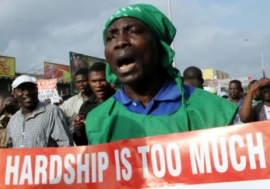Book Review: Living Together, Living Apart? Social Cohesion in a Future South Africa
Book Review: Living Together, Living Apart? Social Cohesion in a Future South Africa
A quarter of a century after the demise of apartheid’s notorious system of racial segregation, South Africans still grapple with the legacies of inequality and injustice. Their leaders frequently talk about building “social cohesion,” towards a new, more inclusive society that can overcome the continuing divides of race, language, income, gender, culture and social position. Generally, however, they speak only in the vaguest terms, and tend to put forward solutions more symbolic than practical.
From their varied perspectives as academics, legal practitioners, scientists and women’s rights activists, the 20 South African contributors to this collection (published in 2017 by the University of KwaZulu-Natal Press in Durban, South Africa), ask one basic question: “Instead of living apart, how—together—can we make a future?”
Social scientist Gerhard Maré, one of the book’s editors, notes that while racial identities are still the most visible markers of difference, economic cleavages are just as prevalent. Inequality may no longer coincide with race as starkly as it once did—witness the emergence of a few wealthy blacks. Yet inequality remains a predominant feature of South African society, with structural roots that cannot be removed by simply providing charity to the poor.
The authors take up differences in a variety of fields, from housing and education to language and culture, and explore possible ways to bring people together through art, music, sports and other means.
Concepts of identity can be fluid and complex. Combined with deprivation, they can also become explosive, as in recent xenophobic attacks against African immigrants. For the writer Njabulo S. Ndebele, it is thus vital to act not just as citizens, but as “human beings.”
The legacies of apartheid may be unique to South Africa, yet this book’s broader themes of overcoming inequality and exclusion are relevant to Africa as a whole.
— Ernest Harsch

























